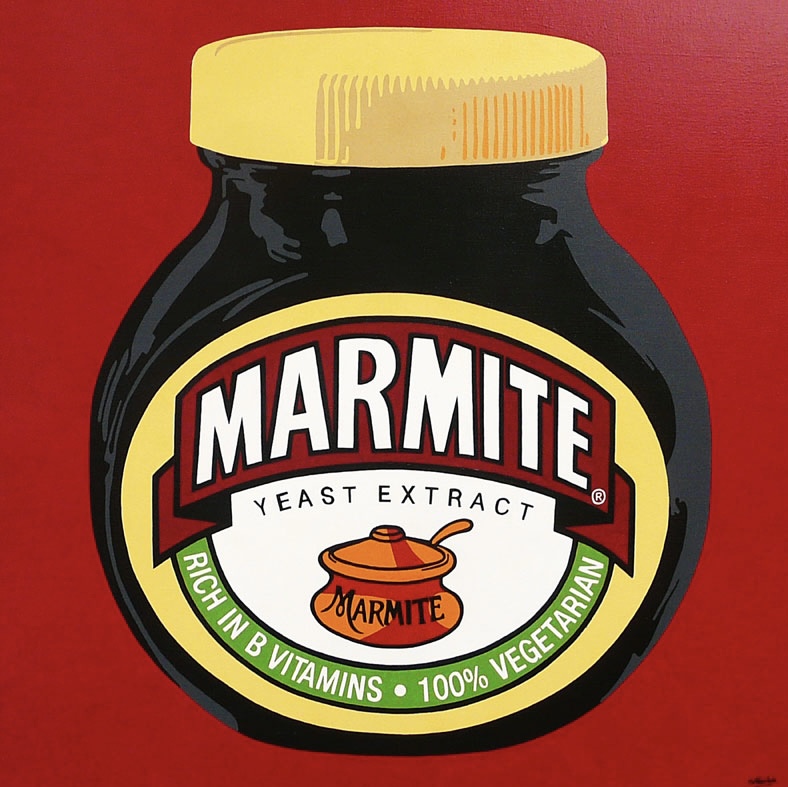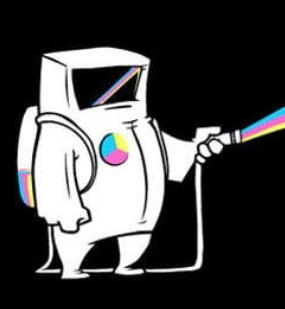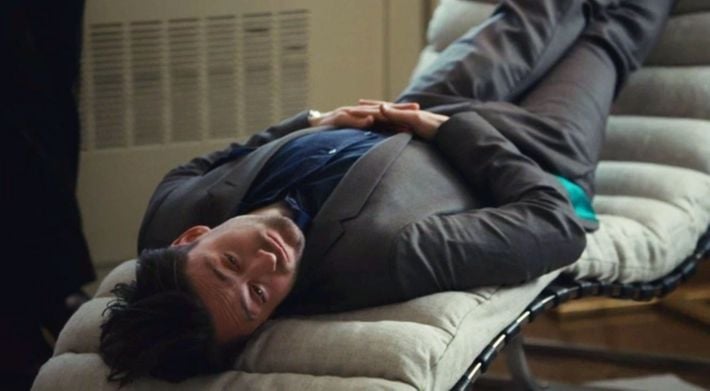I may have ask this before but im not too sure.
So it leems i wont be able to get into theripy anytime soon for some dumb reasons and also some family members problems have to be taken care of first like surgerys and whatnot.
I have depression pretty badly which kinda runs in the modern age like a plague and im not sure what to do with it, im not even sure what to do now or in the future. i feel very lost and stuck while being in some sort of werid loop. it dosent help how i have autism which also stinks. it feels like i always want things instanly or my interest changes every day, which is prety annoying and im limited in many ways.
what can i do to help with depression and life?..
Walks, in nature if possible, always immediately improve my mental health.
Walking, Nature, Sunlight
I believe all three have some science behind helping reduce depression.
Might look into medication and therapy as well as the other options presented. It can be rough getting started, and finding the right fit, but for some people, it can be a life changer.
Things that help me:
-
Having a routine- every Sunday I walk into town and get a nice coffee/cake and read for a while and just be around people. If I stay inside for too long I will start to self isolate.
-
Hobby- I go to a couple of choirs during the week. It helps me get out of the house and it’s an activity that stops me dwelling on things. You’re usually too busy focusing on the music to think of anything else. Singing also helps you regulate your breathing which is supposed to help with relaxation and sleeping.
-
Spend time in or around nature, even if that’s a pet. Being around green space can help ground you. Being around animals can be a massive boost. Go to the park with a book and spot dogs.
-
Medication - this has helped me more than anything but isn’t for everyone. I also had a few rounds of therapy but didn’t get loads out of it, but it may well work for you.
-
Sorry you are going through this. In the UK, the NHS recommends exercise as an effective way of help mild to moderate depression. You may hate the idea, it’s worked for me in the past. That can be as simple as going out for a short, brisk walk. I hope you get some relief soon.
https://www.nhs.uk/mental-health/conditions/clinical-depression/treatment/
Forgive me, but I’m going to give you a “non-answer”. The reason is that depression is very personal, and you should probably only get advice on your specific situation by a licensed therapist. Even a licensed therapist isn’t good enough for some people, and they’ll need to find the right therapist, and even then they may require medication.
With that out of the way, I’ll tell you that you probably need to forgive yourself a bit more than you currently do. If you’re high strung, rigid, and tend to be harsh with yourself for failure (which only makes depression worse, especially when you end up feeling down while beating yourself up over it), then the only way to break that cycle is to be genuinely forgiving with yourself. What some people have said is pretend it’s not you in the situation, but a friend. What advice would you give that person?
A very smart man I know once told me that we tend to judge others based on their actions and outcomes, and ourselves based on our intentions. That means that if we didn’t mean to hurt somebody then we can be a bit more dismissive than if somebody hurt us but didn’t mean it. That said, it can also cut the other way. If you intended to succeed at something but didn’t, you can beat yourself up over it. Nobody around you would be any the wiser about your shortcomings or failures, but you might be likely to draw attention to it and judge yourself harshly based on your (lack of) results.
I probably wrote this mostly for myself and my situation, but hopefully it helps you a bit. There’s no plan for life. We just all do the best we can with the hand we’re dealt in the situation we happen to be in at the time. Hell, most of people’s success comes down to luck, not hard work. To make things worse, neither success nor money will make you more happy with yourself. They may help, but they won’t do it on their own.
Quite a few good tips have been mentioned already:
- proper sleep schedule (sunlight early and during day, litlle light in evening / at night helps)
- regular movement / sports
- nutrition (less sugar)
The saying “a healthy mind resides in a healthy body” has some truth to it.
But one thing I wanna mention is journaling:
One of the benefits of psychotherapy is that you have to articulate your thoughts. Turns out articulation via writing gets you quite far and is already a lot better than spinning thoughts in your head only.
Literally just write what comes to mind. Or ask yourself what was good or bad about “yesterday”. Try writing on most days, but don’t force yourself to a specific amount. Try sticking it out for some weeks until it becomes normal to write. Over time you might see certain patterns, topics that come up again and again. This can also serve as a possible base for later talks with your therapist.
Nevertheless, I still wanna encourage you to try therapy, as having a therapist ask you questions can get you better out of your own thinking patterns (kinda hard if you try it with just your own, single mind).
Theraphy can also function as a catalyst, to get you over the worst part and give you a new perspective, which you then can follow more and more by yourself if so desired. But the answer to that will come to you when the time is right.
Take care, it will get better eventually! Just may take a while, some external help and some patience with yourself.
daily exercise, clean eating, daily meditation, quality sleep.
No advice won’t help immediately, that’s a given. What helped me are a few things that compounded upon one another. The first thing is to be thankful for what does go right. You’d be surprised how well this works after awhile. Keep a journal, mark how you feel in the morning and at night, but always note something you appreciate.
Secondly, and I cannot stress this enough, read. It can be fantasy or anything, really. What’s important is that you walk in someone else’s shoes for a bit, this will help with perspective, and being seen. It might even help teach you something. It all depends.
Third, read some more. This time, don’t just read fantasy, read some selfhelp books with a psychology slant to them. Trust me. It’ll offer insight into how you think, and point out certain things you didn’t realize. I suggest “The Power of Habit” and “Smarter Faster Better” by Charles Duhigg - one of these comes first. I also suggest “The Power of Grit” by Angela Duckworth, and “Atomic Habits” by James Clear.
Knowing yourself gives you power over yourself. Goodluck.
I found this video helpful https://youtu.be/LO1mTELoj6o
I speak as someone who has been able to somewhat manage my own issues with depression.
- One immediate thing you can do is to cut out major sources of sugar from your diet. Give it 3 days (I notice the effects with less than 2 days) at least. Mental health and physical health are interconnected, so one bad thing affecting your metabolism is for sure going to have an effect on your brain (your brain’s metabolism and ability to regulate energy too).
- Get enough sleep and exercise, as well as meditation. For meditation you can start with short sessions and make sure to keep in mind that there is no “failing to focus/meditate” as it’s all part of the journey/process.
- As others have said, sunlight.
- Socialization. I personally don’t get enough time out of the house but I notice the effects immediately when I do.
The next two tips are from the book “Feeling Good” by Dr. David Burns. I haven’t finished the book yet but have made use of what I’ve read, and some that have helped me the most are:
- The “Self-Approval Method” - everyday, count the number of things you did or anything about yourself that you approve of or are proud of. Hopefully as you get more used to it that number will rise over time.
- The “Triple-Column Technique” - on the first column you will write down your automatic thoughts (the negative, self-defeating thoughts that seem to come naturally to people with depression); on the second column you will list down the cognitive distortions you can identify from the first column (look up a list of cognitive distortions, there are about 10 of them); and on the third column write down your rebuttal to the automatic thought but make sure it is realistic and not wishful thinking.
That’s all I can say, and I hope you get better! All the best!
Therapy and medication.
You can obviously do things that will make you feel better, like going to the gym or practicing sports, but ultimately it comes down to treating a medical illness.
I’ve struggled with depression for much of my life, and what’s helped me get moving out of the most recent hole I’ve been in is realizing I needed to make a number of large changes in my life. I took stock of many of the things in my life that stressed me out every day, and did my best to make progress towards changing my circumstances. Even small steps matter, they add up over time.
I started keeping my room clean, then the bathroom. I stopped drinking alcohol (this was a killer for me). It took over a year to go from five plus drinks a day to none, but I did it. Treat the small steps you take towards bettering yourself and your life as giant leaps, because they are. Don’t treat setbacks as giant mountains, they’re just molehills.
Everyone will recommend the same stuff to you over and over without asking if you’ve tried any of it before. The truth is, if you can get access to them, anti-depressants are pretty great. They aren’t a magic solution, but they do make it manageable. Coping strategies and excersise only work if you are in a place to even get up and try it.
Exercise sounds like it won’t work, but it sometimes does
Try putting on music and moving around to it. Walking, dancing, since you have autism stimming. Works best with faster beats.
Go sit somewhere noisy and colorful like a busy mall or grocery store. It distracts you from the depression for a bit, and helps if understimulation is contributing to the depression.
Find something cool to look really closely at, think about how it works. Being deeply interested in something (irl, not online) can help for a little bit
Might look into medication and therapy as well as the other options presented. It can be rough getting started, and finding the right fit, but for some people, it can be a life changer.
Drugs











